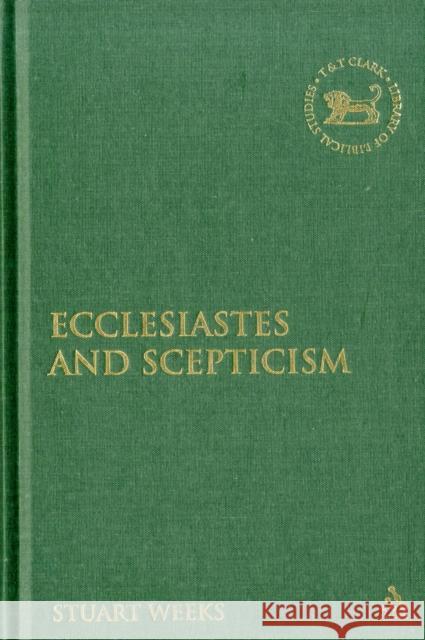Ecclesiastes and Scepticism » książka
Ecclesiastes and Scepticism
ISBN-13: 9780567252883 / Angielski / Twarda / 2011 / 240 str.
Ecclesiastes and Scepticism
ISBN-13: 9780567252883 / Angielski / Twarda / 2011 / 240 str.
(netto: 733,50 VAT: 5%)
Najniższa cena z 30 dni: 743,64
ok. 30 dni roboczych.
Darmowa dostawa!
By emphasising observation and empiricism as a key influence on human behaviour, this work excludes any consideration of tradition or revelation. Scholars often view the apparent scepticism of Ecclesiastes in terms of a reaction against the more confident assertions found in works like Proverbs, and the book does indeed seem to deny the possibility of humans shaping their future or changing their fate through informed action. What appears to concern the works protagonist, whose monologue occupies most of its length, is not any scepticism about Gods activity or consistency rather the problems that arise from a human inability to discern divine action or purpose. This study will seek to understand both the roots and the implications of this empiricism, comparing the monologue with other biblical and ancient literature, and suggesting that, although it has points of contact with other texts, its scepticism is largely distinctive and, unlikely to represent some broader tradition. For that reason and others, the work as a whole is unlikely to be a satire, as is sometimes suggested, but it may be inviting critical reflection on the outlook and limitations of its protagonist. Over the last 30 years this pioneering series has established an unrivaled reputation for cutting-edge international scholarship in Biblical Studies and has attracted leading authors and editors in the field. The series takes many original and creative approaches to its subjects, including innovative work from historical and theological perspectives, social-scientific and literary theory, and more recent developments in cultural studies and reception history.











